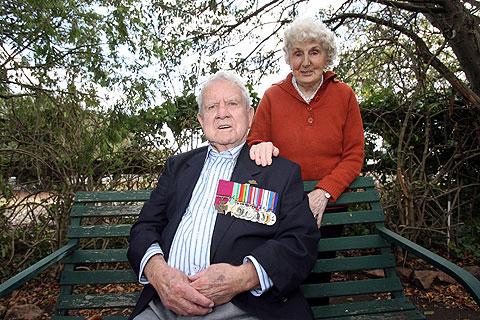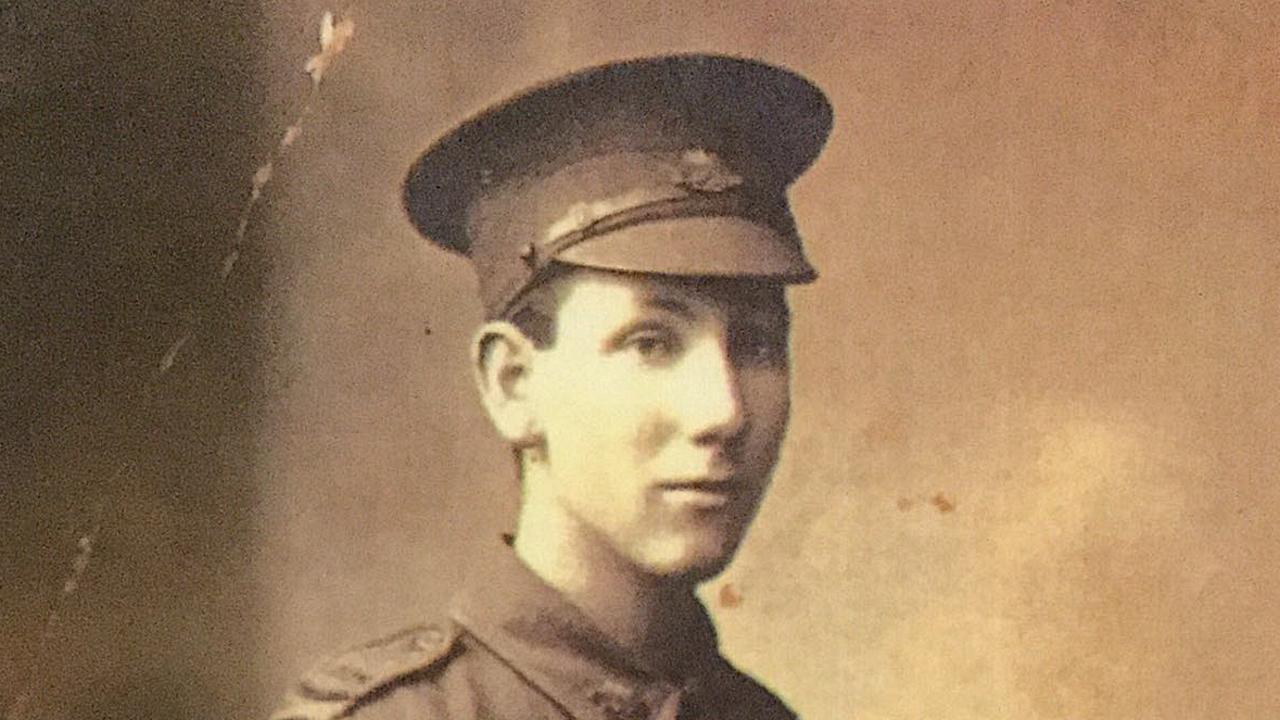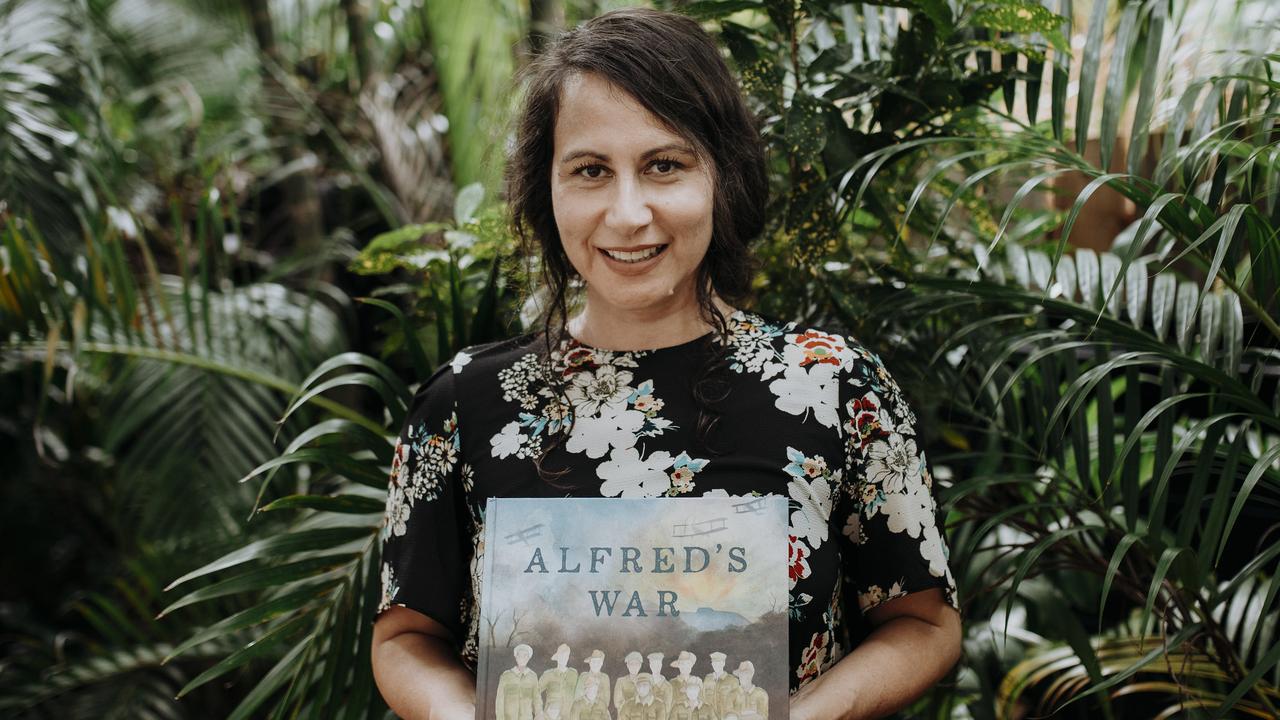It was horror at first sight when wounded VC hero crossed her pa
TED Kenna's skin hung from his bones and he stank of rotting flesh when Marjorie Rushberry first laid eyes on him in June 1945. For the young nurse, it was not love at first sight, but horror.

TED Kenna's skin hung from his bones and he stank of rotting flesh when Marjorie Rushberry first laid eyes on him in June 1945. For the young nurse, it was not love at first sight, but horror.
The wounded soldier's face was torn apart, with entry and exit holes in the cheek where a bullet had ripped through flesh and then ricocheted off teeth, reversing and entering the young private's chest.
It did not strike Miss Rushberry that this could be exactly the kind of Casanova her father had warned her about.
"Be careful of those boys, you know what hospital romances are like," the nurse's father, also a former serviceman, would say.
He was right. Mr Kenna's nurse is now his wife of 60 years, still by his side in his home town of Hamilton in western Victoria, where Australia's oldest surviving Victoria Cross recipient was greeted as a hero yesterday at the town's Anzac Day service.
In the nine months that the young nurse cared for Mr Kenna at Melbourne's Military Hospital in 1945 and 1946, he never spoke of the single-minded act of bravery in the face of concentrated enemy fire in New Guinea that saw him later awarded the Commonwealth's highest military honour.
The VC, worth as much as $1million to collectors, is kept in a bank vault these days, except for Anzac Day, when Mr Kenna proudly pins it to his chest.
Despite its potential price tag, Mr Kenna, who with Vietnam War hero Keith Payne is one of two surviving Australian VC winners, says there is no way he will ever sell the medal for fear that to do so would dishonour his fallen mates. "I think the boys at the time, it belongs as much to them as it does me," he said.
Eventually, of course, he will pass it on to his children. If they ever part with it, he hopes it will be to the Australian War Memorial.
Weeks before he arrived bleeding and shattered at the hospital, the then young private had stood up in the middle of intense Japanese gunfire near Wewak in New Guinea and picked off three enemy gunners while bullets flew around him.
His unit, company A of the 2/4th Battalion, 19th Brigade, 6th Division, had just advanced 130km along New Guinea's jagged north coast, an unforgiving mission that reduced their number from 11 men to four. But a Japanese machinegun post embedded high on a hill near the Wirui Mission had ground the entire company to a halt, and Mr Kenna's battalion was ordered to clear them out.
In what seemed like a suicidal mission, Mr Kenna's section moved in close to the enemy bunker, with the rest of the platoon poised to attack from the flank. As the attackers' first shots rang out, the Japanese returned fire with frightening speed and accuracy, wounding Mr Kenna's comrades and halting the attack.
Mr Kenna could not get his Bren gun high enough to shoot as he watched his comrades fall. He was the only one in the unit that could see where the enemy fire was coming from. Knowing this, he stood up not 50m from the source of the enemy fire and called for his mate to throw over his .303 rifle.
As bullets passed so close to his body he could feel their wind, with a steady hand Mr Kenna picked off three enemy gunners with startling accuracy.
"It was just being in the right place at the right time," he said yesterday in what is a characteristic understatement.
Mr Kenna blames war's fickle hand, that so indiscriminately deals death and hideous injury, for the fact that it was not on that hill in New Guinea that a bullet nearly entered his brain.
The injury that saw him packed off to the quiet lawns of Marjorie Rushberry's hospital came three weeks later, also near Wewak in New Guinea.
In his first three weeks at the hospital, in a private ward, Mr Kenna complained to nurses about the glass tube that fed him, inserted through the gaps where a couple of his teeth had been. A locked jaw meant he could not take food any other way.
But as his strength grew - along with a growing affection for his favourite nurse - the army private's "cheeky" personality gradually revealed itself and, as the months wore on, Mr Kenna was strong enough to escort Miss Rushberry back to nurses quarters when she knocked off work.
The pair would promenade side by side along wooden boards that separated the hospital from the quarters, prompting staff to refer to their pairing as "the romance of the duckboards".
"Before he got out of the hospital he told me that he was going to marry me," Mrs Kenna says. "The exact words were 'Do you know where Hamilton is?' I said, 'No, I don't want to know where Hamilton is'. He said, 'You should, because you're going to be living there'. Here I am 60 years on."
Yesterday was the first Anzac Day Mr Kenna and his wife have spent in Hamilton in many years. As a World War II hero who is very familiar with the handshake of the Queen, he is usually being escorted off around the country to ceremonial events.
But the 87-year-old was weary yesterday. Blood does not flow through his legs too well these days. He does not march any more, but was sitting in a plastic chair on the lawn in front of the town's cenotaph waiting to greet his mates as they ended their march through the town's main street.
That is what Anzac Day will probably be from now on, Mr Kenna reckons. A day to spend at home, saying g'day to old mates and remembering those who did not make it this far down the road.



